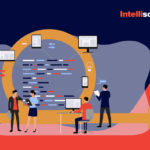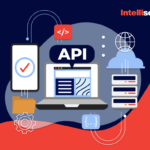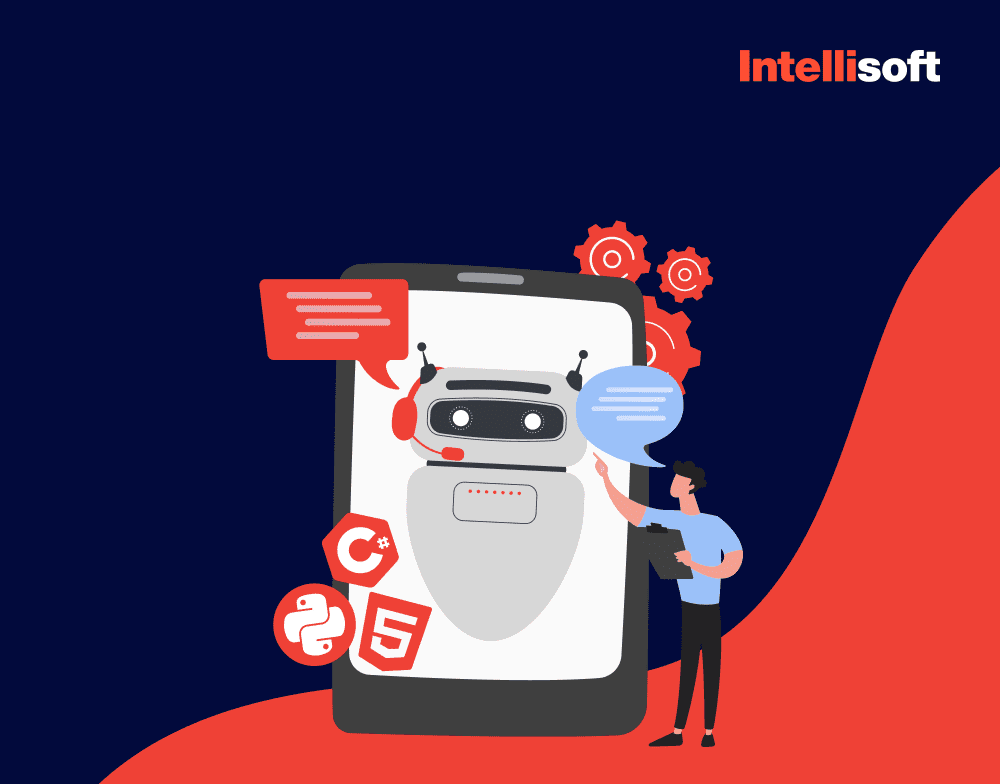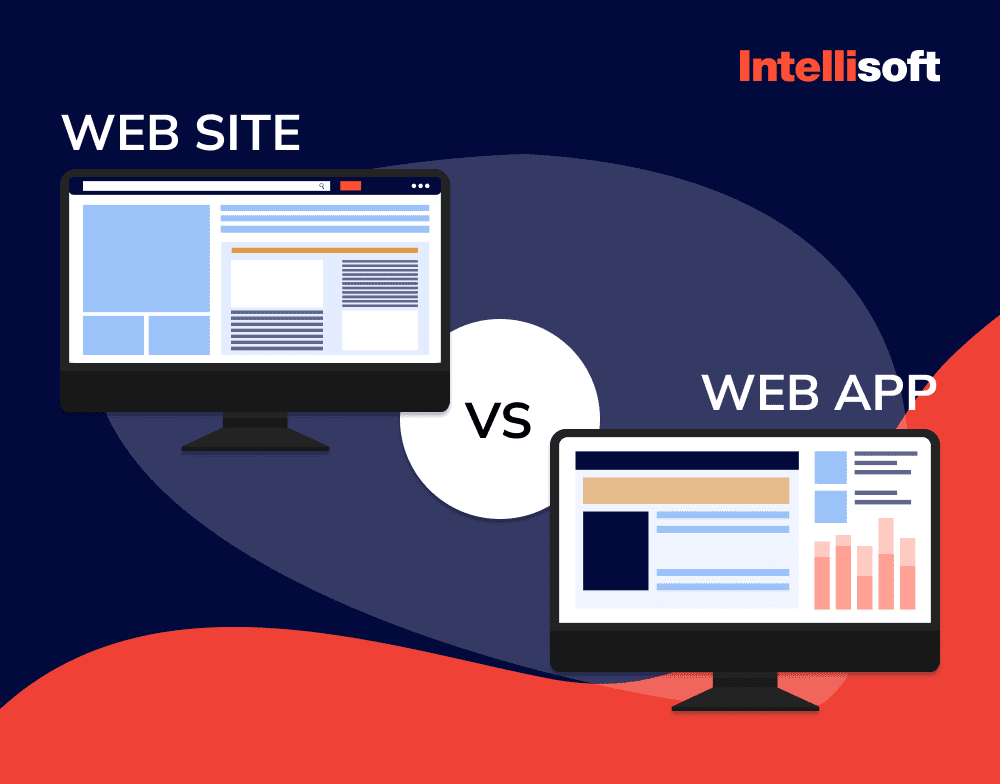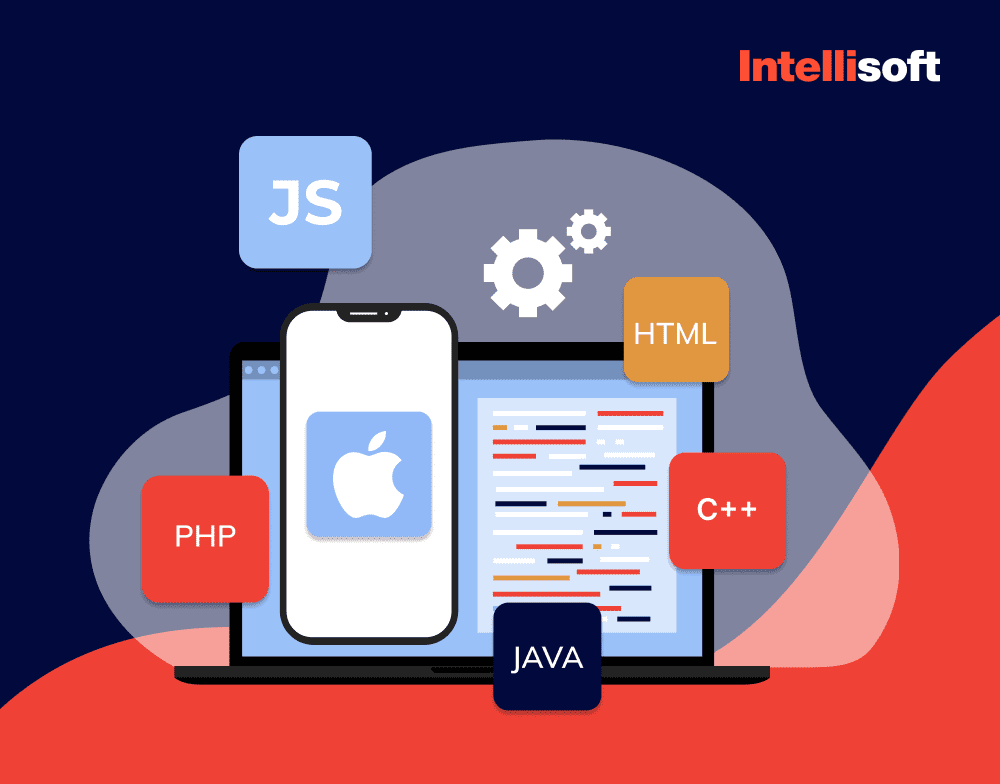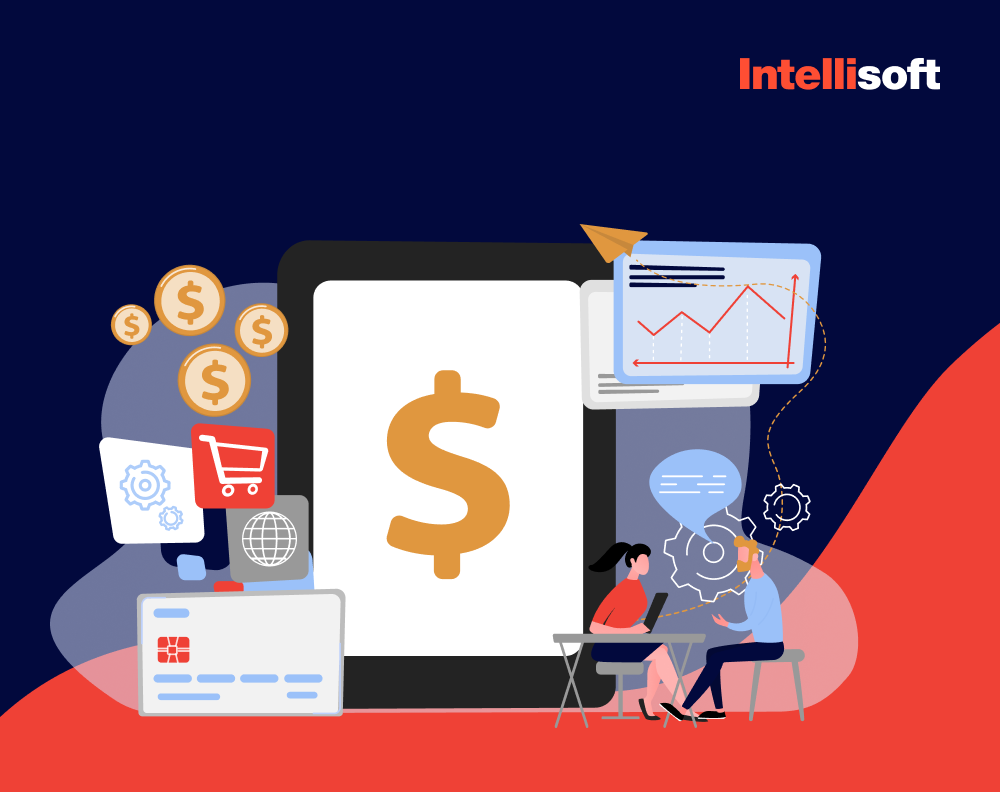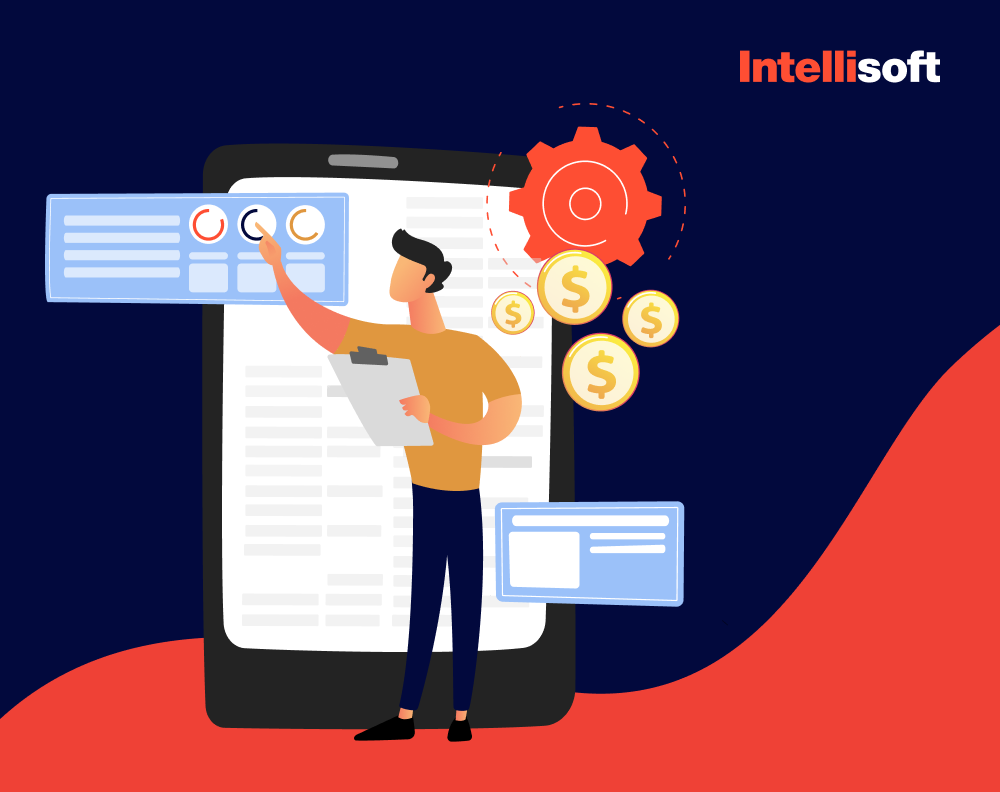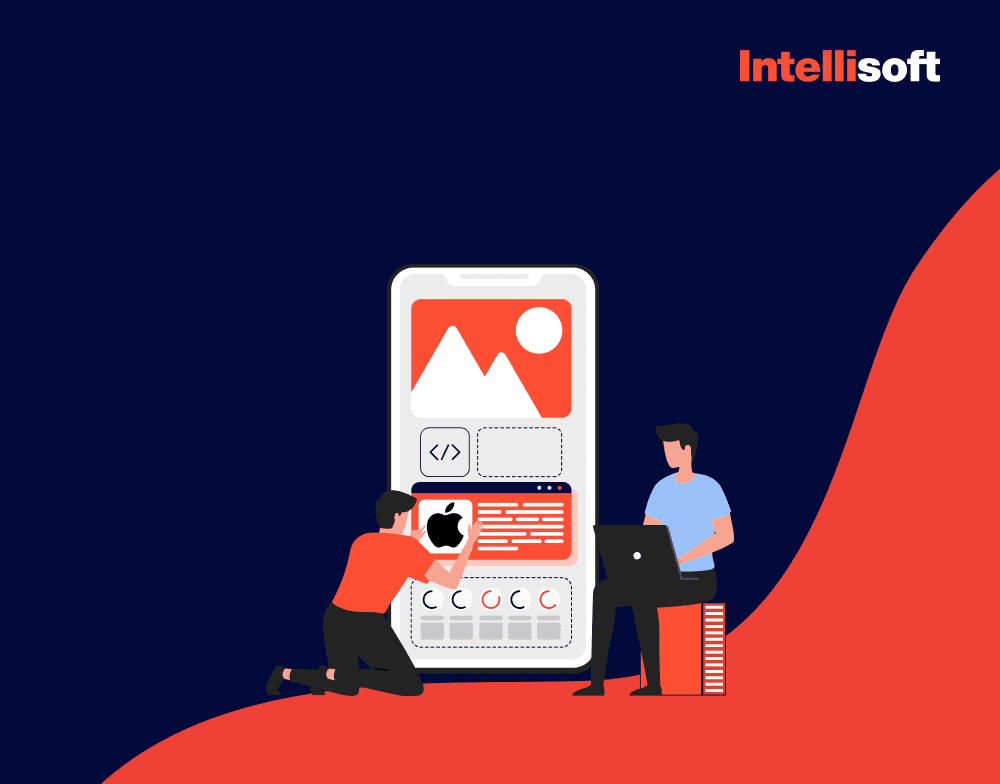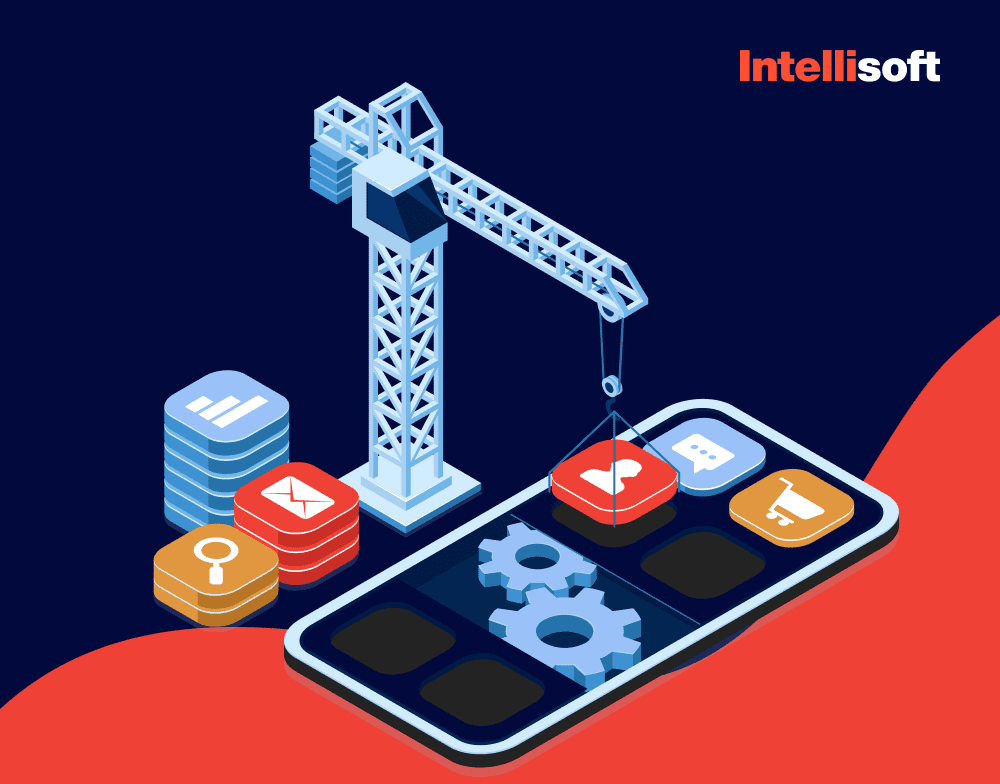Whether you’re an experienced business owner or an owner of a startup, mobile presence is your ticket to success and higher competitiveness in the cut-throat market. In mobile applications, you’re often faced with a crucial decision; do you invest significant time and resources into developing your own app in-house, or do you explore alternative solutions such as white label app development?
White label app development stands out as a great option, offering a streamlined pathway to mobile market success. It allows entrepreneurs to leverage pre-built solutions and customizable templates, significantly reducing the time and effort required to launch a fully functional mobile application.
At IntelliSoft, we have been white labeling apps for our clients for more than 10 years, and we’re here to offer you guidance and help in this endeavor. We will dive deep into white label mobile app development, answer the question “What is a white label app?”, shed light on its benefits and transformative power, and share our knowledge and experience in this field. Join us on this journey, and let’s revolutionize your mobile strategy together.
Table of Contents
What is While Label Software?
White-label apps are pre-built mobile applications developed by third-party providers and offered to businesses under their own branding.
These apps serve as blank canvases that can be customized and rebranded to align with individual businesses’ specific needs and preferences. Unlike traditional app development, which involves creating an application from scratch, white labeling provides a ready-made solution that significantly reduces the time, resources, and expertise required to launch a mobile application.
These white-label solutions cover various functionalities, catering to diverse industries and business objectives. From e-commerce platforms and productivity tools to communication apps and beyond, white-label apps offer versatility and flexibility to businesses seeking to establish a mobile presence without the complexities of in-house development.
White labeling empowers businesses to capitalize on the benefits of mobile technology without the burden of extensive development cycles or excessive costs. They are a cost-effective and efficient means of entering the mobile app market, enabling businesses to focus on core competencies while leveraging proven solutions to drive growth and innovation.
Benefits of White Label App Development
White-label apps are popular for a reason; well, multiple reasons. Let’s explore why everyone talks about white-label partnerships these days and how you can benefit from it.
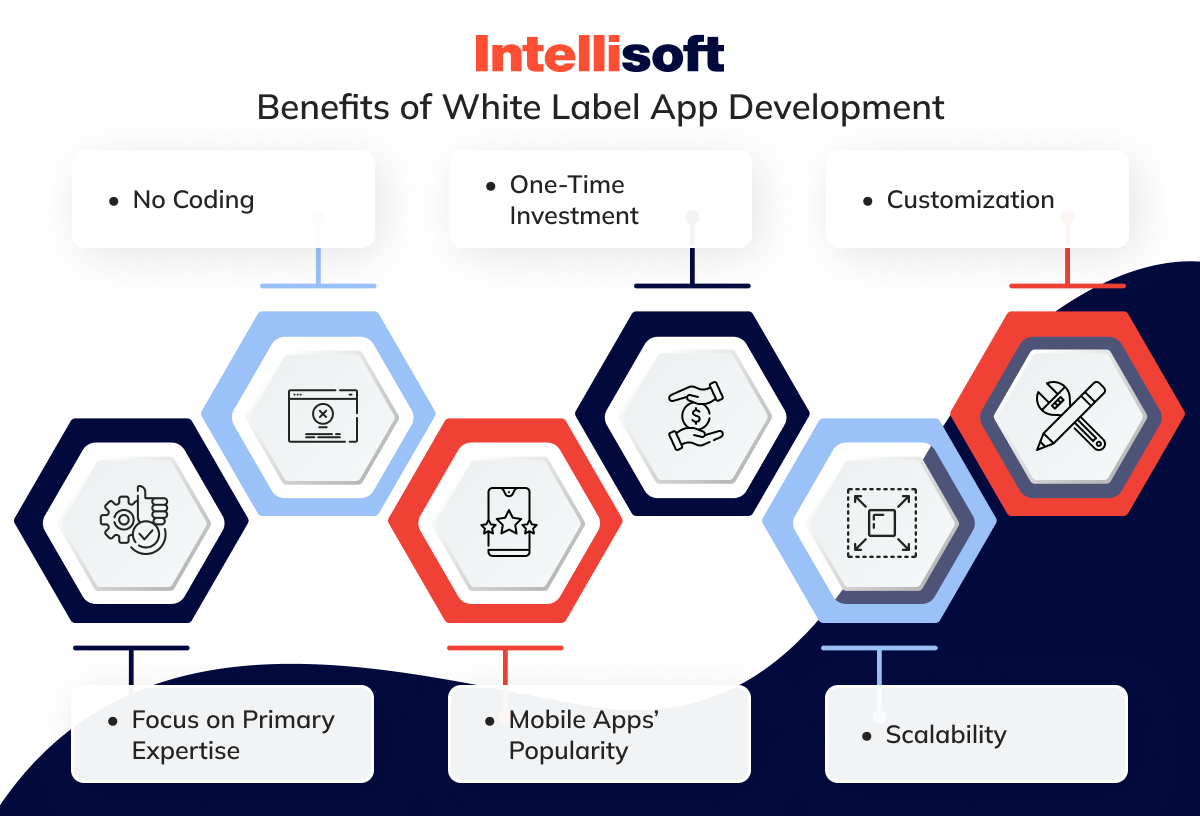
Focus on Primary Expertise
By opting for white label app development, businesses can allocate their resources and attention to their primary expertise, whether it’s in marketing, sales, or customer service. This allows them to streamline their operations and maximize efficiency without diverting valuable resources to app development tasks.
No Coding
With white-label solutions, businesses can bypass the need for extensive coding knowledge or hiring a dedicated development team. This saves time and effort and reduces the risk of technical errors or delays in the development process. Businesses can bring their app vision to life without writing a single line of code by leveraging pre-built templates and intuitive customization tools.
Mobile Apps’ Popularity
In an increasingly mobile-driven world, having a presence on smartphones is essential for businesses to stay competitive. White label mobile app development allows businesses to capitalize on the popularity of mobile apps without the hassle of starting from scratch. By offering a convenient mobile experience, businesses can enhance customer engagement, drive sales, and build brand loyalty in today’s digital landscape.
One-Time Investment
A white label app builder typically involves a one-time investment, making it a cost-effective solution compared to developing a custom app from the ground up. This upfront investment yields long-term benefits and savings in time and resources. Unlike custom app development, which may require continuous maintenance and updates, white-label apps offer a predictable pricing structure, allowing businesses to budget effectively and avoid unexpected expenses down the line.
Scalability
App builder white label solutions are designed to scale effortlessly as your business grows. Whether it’s accommodating a surge in users or expanding features to meet evolving demands, these solutions can adapt to your business needs with ease. With built-in scalability features and flexible infrastructure, white-label apps ensure a great user experience regardless of the volume of traffic or transactions, allowing businesses to scale their operations without worrying about technical limitations.
Customization
Despite being pre-built, white-label apps offer ample customization options. Businesses can tailor the app’s design, features, and functionalities to align with their brand identity and provide a personalized user experience. From branding elements and color schemes to user interfaces and navigation menus, businesses can customize every aspect of the app to reflect their unique personality and values. This level of customization not only enhances brand recognition and loyalty, but improves user engagement and satisfaction, resulting in higher conversion rates and revenue growth.
Which Industries Use Label App Development?
White-label apps have become a cornerstone in various industries, offering customizable solutions to meet the specific needs and requirements of businesses. Let’s explore how different sectors utilize white-label apps to enhance their operations and customer experience.
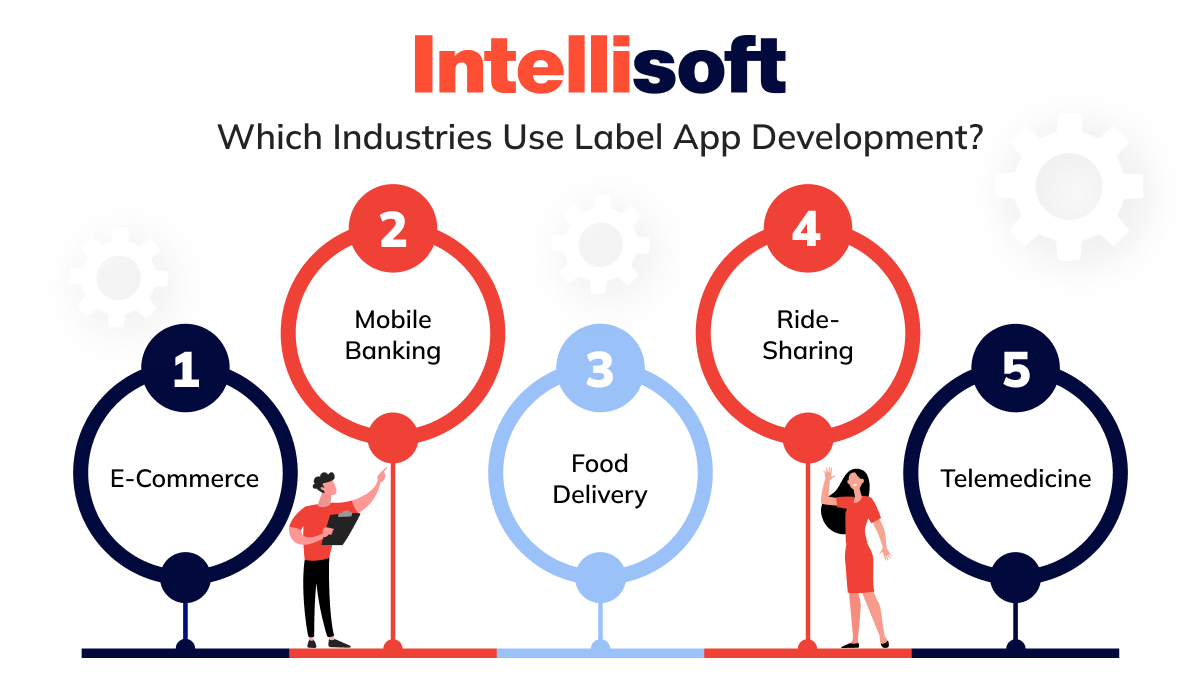
E-Commerce
The e-commerce industry has embraced white-label apps to provide customers with seamless shopping experiences on their mobile devices.
Retailers can leverage white-label solutions to create branded mobile apps that offer intuitive navigation, personalized recommendations, and secure payment options.
With features like push notifications and in-app messaging, e-commerce businesses can engage customers effectively, drive sales, and build brand loyalty.
Example: Shopify Mobile App. Shopify offers a white-label mobile app solution for e-commerce businesses to create their branded shopping apps.
Key Features
- Seamless integration with Shopify’s online store allows businesses to manage products, orders, and customer data from one platform.
- Customizable design templates to reflect the brand’s identity and aesthetics.
- Push notifications to engage customers with promotions, new arrivals, and order updates.
- Secure payment processing and checkout functionalities for a smooth shopping experience.
Mobile Banking
White-label apps have transformed the banking sector, enabling financial institutions to offer mobile banking services tailored to their customers’ needs.
With white-label solutions, banks can provide features such as account management, fund transfers, and bill payments through intuitive mobile interfaces.
Enhanced security measures such as biometric authentication and real-time alerts ensure a safe and convenient banking experience for users, fostering trust and loyalty.
Example: Moven. Moven provides a white-label mobile banking solution for financial institutions to offer personalized banking experiences to their customers.
Key Features
- Account management features, including balance inquiries, transaction history, and fund transfers.
- Budgeting and financial tracking tools to help users manage their spending habits and savings goals.
- Real-time alerts and notifications for account activities and suspicious transactions.
- Biometric authentication options such as fingerprint or facial recognition for enhanced security.
Food Delivery
The food delivery industry relies heavily on white-label apps to connect restaurants with hungry customers seeking convenient dining options.
With white-label solutions, restaurants can launch their branded food delivery apps, offering features like menu browsing, order tracking, and seamless payment processing.
Integration with GPS technology enables efficient delivery logistics, while customer reviews and ratings facilitate feedback and improve service quality.
Example: UberEats. While not strictly a white-label app, UberEats operates similarly to a white-label platform, providing restaurants with a branded app for food delivery services.
Key Features
- Menu browsing and ordering functionalities, allowing users to explore dishes and place orders seamlessly.
- Real-time order tracking and status updates to keep users informed about their delivery.
- Integration with payment gateways for secure and convenient transactions.
- Review and rating system for users to provide feedback and recommendations on their dining experiences.
Ride-Sharing
Ride-sharing companies leverage white-label apps to provide transportation services in urban areas, catering to the growing demand for convenient and affordable mobility solutions.
White-label ride-sharing apps offer features such as real-time ride booking, driver tracking, and fare estimation for hassle-free travel experiences.
Safety measures such as driver background checks and ride monitoring enhance passenger security and confidence.
Example: Lyft Business. Lyft offers a white-label solution for businesses to provide transportation services to their employees or customers.
Key Features
- Booking and scheduling rides for individuals or groups with options for different vehicle types.
- Integration with corporate accounts for easy billing and expense management.
- GPS tracking and real-time updates on driver location and estimated arrival times.
- Safety features such as driver background checks and ride monitoring for peace of mind.
Telemedicine
The healthcare industry has embraced white-label telemedicine apps to deliver virtual medical services and expand access to healthcare resources.
With white-label solutions, healthcare providers can offer features like video consultations, electronic health record (EHR) integration, and prescription management through secure mobile platforms.
Telemedicine apps improve patient engagement, enable remote diagnosis and treatment, and alleviate healthcare disparities.
Example: Teladoc. Teladoc offers a white-label telemedicine platform for healthcare providers to offer virtual consultations and medical services.
Key Features
- Secure video conferencing for remote appointments with healthcare professionals.
- Electronic health record (EHR) integration for access to patient medical history and records.
- Prescription management and digital prescriptions for medication refills or new prescriptions.
- Appointment scheduling and reminders to keep track of upcoming consultations.
White-Label vs Custom App Development
If you’re deciding between developing a white label or a custom app for your business, it’s important to learn about the key differences between the two. Let’s explore:
Approach
White-label app development involves utilizing pre-built templates or solutions offered by third-party providers. These solutions are customizable to some extent but generally follow a standardized structure and feature set.
Custom app development entails creating an application from scratch tailored to the specific needs and requirements of the business. This approach offers complete control over the app’s design, features, and functionality.
Ease of Development
A white label app builder typically offers a faster development process since the core functionalities are already built. Businesses can leverage existing templates and features, reducing the time and effort required for development.
Custom app development can be more time-consuming and complex since it involves creating every aspect of the application from the ground up. This approach requires careful planning, coding, testing, and iteration to meet the business’s unique requirements.
Cost and Time
White-label app development is generally more cost-effective than custom development since businesses only pay for customization and branding of the existing solution. Additionally, the shorter development time translates to lower overall costs.
Custom app development tends to be more expensive and time-intensive due to the extensive planning, coding, and testing involved. Businesses need to budget for development resources, ongoing maintenance, and potential revisions or updates.
Customization
While white-label solutions offer some level of customization, businesses are often limited to the features and functionalities provided by the third-party provider. Customization options may be restricted, and businesses may need to compromise on certain aspects of the app.
Custom app development offers unparalleled customization options, allowing businesses to create an app tailored to their exact specifications. From user interface design to backend functionality, businesses have full control over every aspect of the app’s development.
Scalability
A white label app builder is typically designed to be scalable, allowing businesses to accommodate growth and changes in user demand. However, scalability may be limited by the capabilities and infrastructure of the white-label provider.
Custom apps can be highly scalable since they are built to accommodate the specific needs and growth trajectory of the business. Businesses can adapt and expand the app’s features and infrastructure as needed to support increased user volumes and functionality.
Source Code Ownership
With white-label solutions, businesses usually do not own the source code of the underlying platform or technology. While they have the rights to customize and brand the app, they may be limited in their ability to modify the core codebase.
In custom app development, businesses own the source code and have complete control over the app’s technology stack. This ownership allows for greater flexibility, security, and control over the app’s development, maintenance, and future enhancements.
Related Readings:
- What Is a Secure Software Development Life Cycle?
- Why Does Your Tech Start-up Need a Business Plan and How to Create One?
- What Is Cross-Platform App And Why to Choose It?
- How to Build an iOS App for Your Start-up
- Steps to Develop a Successful Mobile App for Android
Multi-Tenant and Single-Tenant white-label Apps
There are two key types of white-label app deployment; single-tenant and multi-tenant. Let’s learn about both.
Multi-Tenant White-Label Apps
These applications function on a shared infrastructure; the developer supplies both the back end and front end to the client via the cloud. You have the flexibility to personalize the app’s front end with your branding and select desired functionalities from pre-built options. This approach is highly cost-effective as updates and maintenance tasks for the app are shared among multiple partners. However, it comes with limitations in terms of both front end and back end customization.
Single-Tenant White-Label Apps
In the case of single-tenant white-label apps, the front end is personalized, but the back end is the same for every client. The main difference is that each app operates on a different server, so you can customize your app without sharing the server with others. It offers more independence, flexibility, and customization without server constraints.
How to Choose a White-Label App Development Company?
Selecting the right white label mobile app builder is a critical decision that can significantly influence the success of your mobile app journey. With so many options available in the market, it’s essential to carefully evaluate various factors to ensure that you partner with a company that aligns with your business goals and objectives. Here’s a comprehensive guide to help you navigate the selection process:
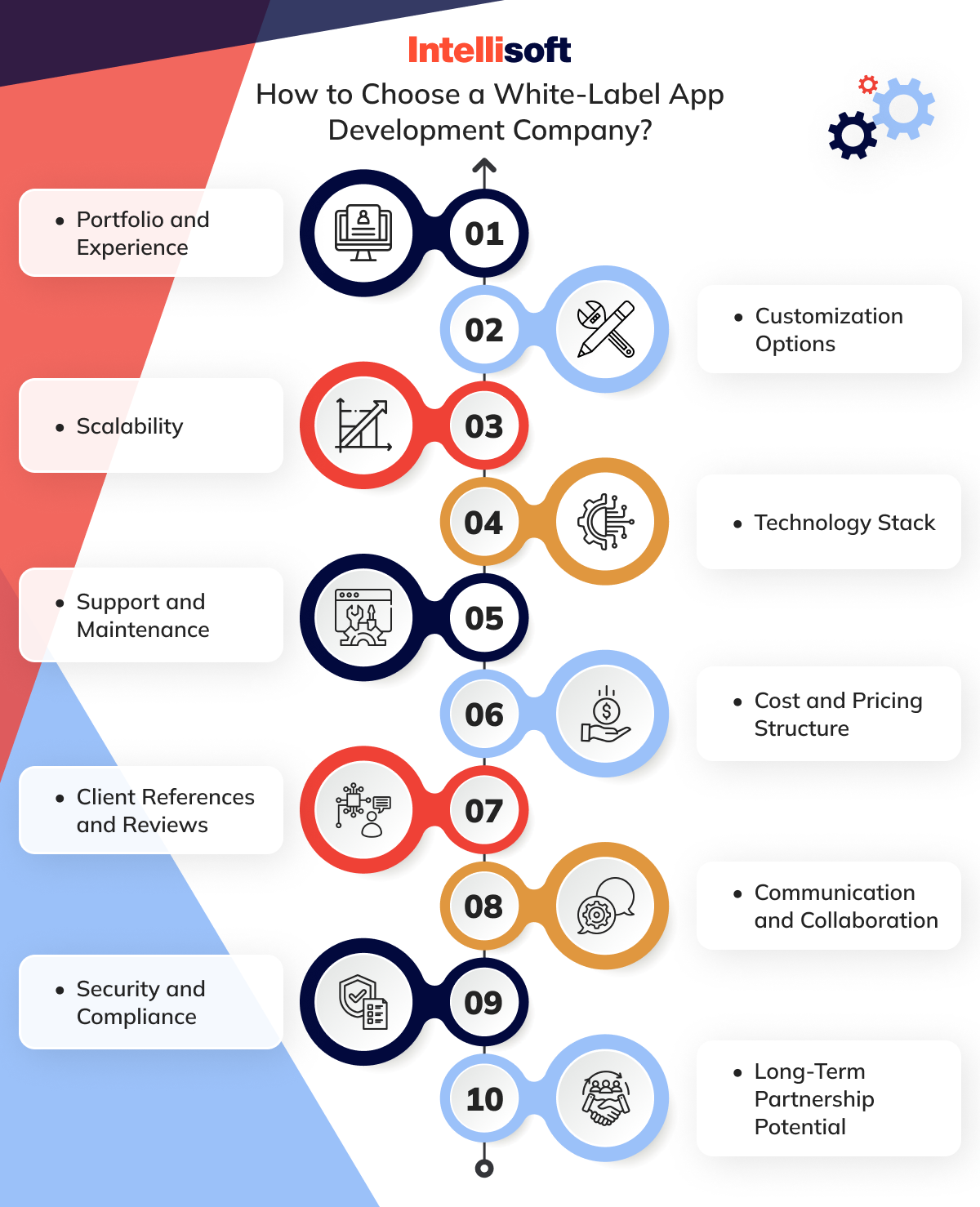
Portfolio and Experience
Begin by reviewing the portfolio of a white label mobile app builder and assessing its experience in white-label app development. Look for examples of projects they have completed, particularly those within your industry or niche. Evaluate the quality of their work, the functionality of the apps they have developed, and whether they align with your vision for your own app.
Customization Options
One of the key advantages of app builder white label solutions is the ability to customize the app to suit your brand and specific requirements. Therefore, it’s crucial to inquire about the level of customization the company offers. Ensure that they can accommodate your branding guidelines, design preferences, and feature requests to create a unique and tailored app that stands out in the market.
Scalability
As your business grows, your app needs to scale accordingly to accommodate increased user volumes and evolving requirements. Therefore, it’s essential to choose a white label mobile app builder that provides scalable solutions. Inquire about their ability to handle scalability challenges and whether their apps can seamlessly grow alongside your business without compromising performance or user experience.
Technology Stack
The technology stack used by the app builder white label company plays a significant role in determining the performance, security, and compatibility of your app. Ensure that the company utilizes modern and robust technologies that are up-to-date with industry standards. Inquire about the programming languages, frameworks, and tools they employ, and verify that they align with your preferences and requirements.
Support and Maintenance
Building a successful app is just the beginning; ongoing support and maintenance are crucial for ensuring its longevity and success in the market. Inquire about the company’s support and maintenance services, including their response times, bug-fixing procedures, and update schedules. Ensure that they offer reliable technical support and are committed to promptly addressing any issues that may arise post-launch.
Cost and Pricing Structure
Budget considerations are a significant factor in any business decision, and choosing a white label app development company is no exception. Evaluate the company’s pricing structure, payment models, and any additional fees or charges involved. While cost is important, prioritize value over price and ensure that you are getting a fair deal that aligns with your budget and expectations.
Client References and Reviews
Seek references from previous clients and read reviews to gain insights into the company’s reputation and track record. Request testimonials or case studies that showcase their past successes and client satisfaction levels. Additionally, reach out to their existing clients to inquire about their experiences and whether they would recommend the company for your project.
Communication and Collaboration
Effective communication and collaboration are essential for ensuring a smooth and successful app development process. Evaluate the company’s communication channels, project management tools, and collaboration processes. Choose a company that maintains open lines of communication, provides regular updates, and involves you in the decision-making process every step of the way.
Security and Compliance
Security and data privacy are paramount when developing a mobile app, especially if it involves handling sensitive user data. Ensure that the white-label app development company adheres to industry best practices and regulatory requirements for security and compliance. Inquire about their security protocols, data protection measures, and compliance certifications to safeguard your app and user data against potential threats and breaches.
Long-Term Partnership Potential
Consider the potential for a long-term partnership with the white-label app development company. Building a successful app is just the beginning of your journey, and you’ll likely need ongoing support, updates, and enhancements in the future. Choose a reliable and trustworthy partner who is committed to your success and can support your app’s growth and evolution over time.
How IntelliSoft Can Help
In the landscape of technology, businesses across diverse industries seek efficient and tailored solutions to meet their specific needs. At IntelliSoft, we understand the varied requirements of different sectors and specialize in providing app builder white label services that empower businesses to thrive in the digital age.
Our commitment to excellence spans every service aspect, from initial consultation to final delivery. We recognize the importance of customization and flexibility, which is why we offer a range of tech stacks for the best white label software that can be seamlessly tailored to suit your brand and requirements.
Whether you’re a startup looking to quickly enter the mobile app market or an established business seeking to enhance your digital presence, we have the expertise and resources to meet your needs. Our team of experienced developers will work closely with you to understand your objectives and create a the best white label software that reflects your brand identity and vision.
From e-commerce platforms and productivity tools to communication apps and beyond, our white-label app development services cover a wide range of functionalities. With our streamlined development process and efficient project management, we ensure timely delivery without compromising on quality.
Moreover, our commitment to ongoing support and maintenance means that you can rely on us to provide assistance whenever you need it. Whether it’s troubleshooting technical issues or implementing new features, we’re here to help you every step of the way.
With a focus on innovation, reliability, and customer satisfaction, IntelliSoft is your trusted partner for white-label app development services. Contact us today to learn more about how we can help you unlock new opportunities and achieve your business goals in the digital world.
